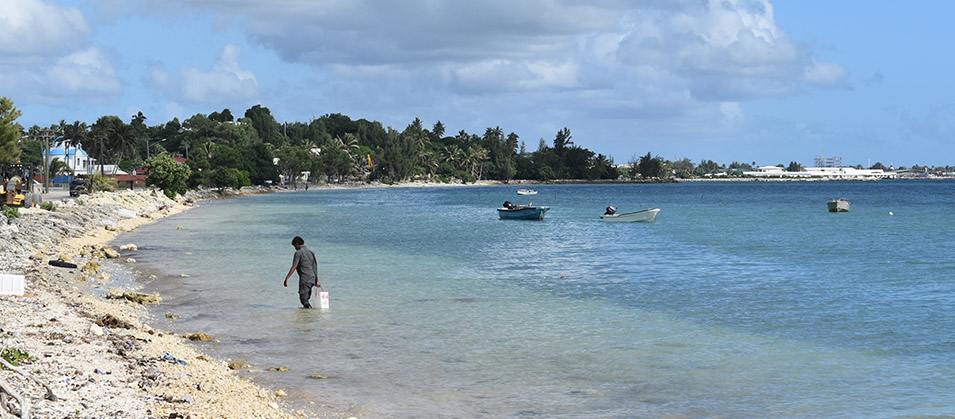
Chinese diplomats in the Pacific are critical of a decision by the Japanese government to dispose of nuclear-contaminated water from the Fukushima nuclear plant accident by discharging it into the sea.
A media statement issued from the Embassy of the People's Republic of China in Nuku'alofa, Tonga, today urged that “Japan’s nuclear-contaminated water should be handled in a responsible way.”
The Chinese rejected the conclusions and “hasty release” of the report of the International Atomic Energy Agency (IAEA) on 4 July, that concluded Japan’s plan to discharge the nuclear-contaminated water into the sea complies with international safety standards, and that the IAEA will conduct long-term monitoring over Japan’s discharge activities.
They said the report “failed to fully reflect the views from experts that participated in the review, and the conclusion was not shared by all experts.”
“Even the IAEA Director-General Grossi stated that the IAEA conducted the review at the request of the Japanese government and the report is neither a recommendation nor an endorsement of Japan’s ocean discharge policy.”
The statement said that the IAEA Report failed to answer the question: “What impact will the long term accumulation and concentration of radionuclides bring to the marine environment, food safety and people’s health?”
“Due to its limited mandate, the IAEA failed to review the justification and legitimacy of Japan’s ocean discharge plan, assess the long-term effectiveness of Japan’s purification facility and corroborate the authenticity and accuracy of Japan’s nuclear-contaminated water data. Therefore, the conclusion is largely limited and incomplete,”
They urged Japan to “stop pushing forward its ocean discharge plan, and earnestly dispose of the nuclear-contaminated water in a science-based, safe and transparent manner, and faithfully fulfill its moral responsibility and obligations under international law,” the Chinese stated.
Solomon Islands
Meanwhile, Xinhua news agency reported on 11 July that China and Solomon Islands have released a joint statement on establishing a comprehensive strategic partnership.
Prime Minister Manasseh Sogavare of Solomon Islands is making an official visit to the People's Republic of China from July 9 to 15, 2023 and met President Xi Jinping and Premier Li Qiang,
The two sides signed cooperation documents, relating to many areas, including support for civil air transport, police, international and regional affairs, Belt and Road cooperation and on Chinese influence in the Pacific islands. They committed to uphold the international nuclear non-proliferation regime with regard to the Treaty on the Non-Proliferation of Nuclear Weapons and the South Pacific Nuclear Free Zone Treaty. They also agreed toexpand exchanges between governments, legislatures, political parties and subnational entities.
Xinhua reported that Solomon Islands had agreed to the Chinese position on one-China, Taiwan, Hong Kong, Xinjiang, and Tibet.



